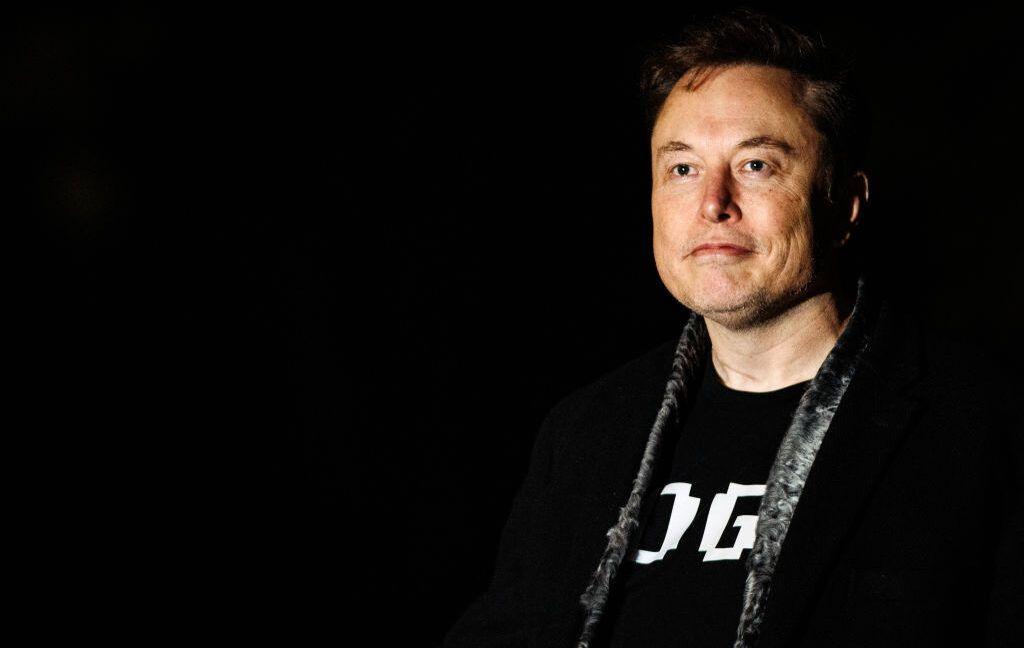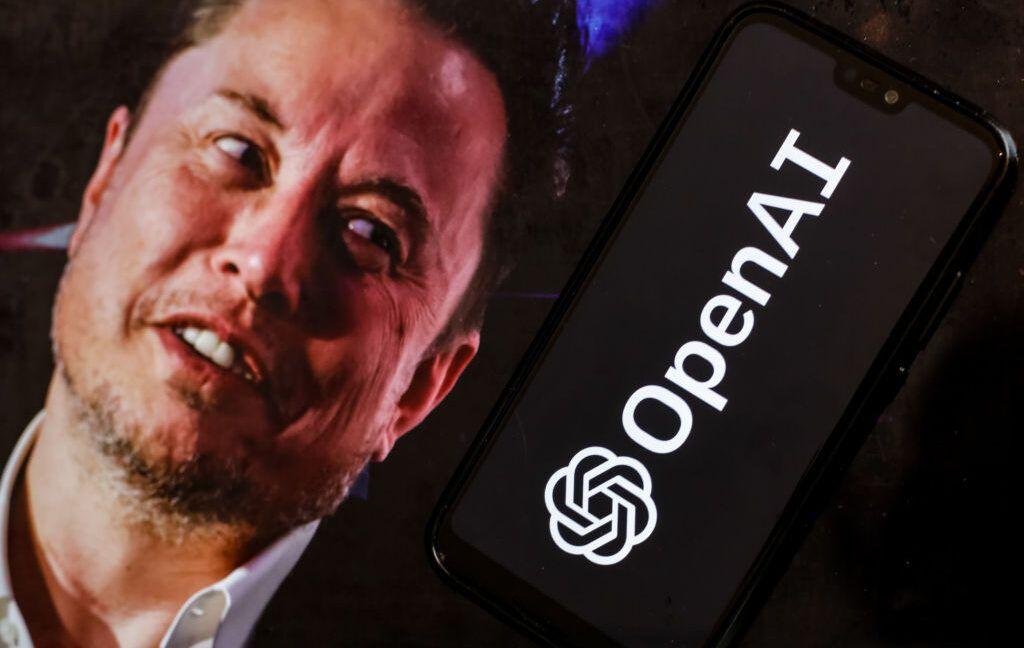OpenAI Faces IRS Complaint Over Alleged Tax Violations and Conflicts of Interest
2 Sources
2 Sources
[1]
OpenAI faces IRS complaint over alleged tax violations
Artificial intelligence watchdog the Midas Project has filed a complaint against ChatGPT maker OpenAI, accusing the firm of potential tax law violations that could threaten its nonprofit status. The tech watchdog stated on Thursday that it has documented OpenAI's "abandoned safeguards, rife conflicts of interest, financial upside for the CEO if the organization goes for-profit, and even potential misuse of charitable funds." The findings were part of a complaint that the Midas Project filed with the US Internal Revenue Service, alleging that OpenAI board members "have massive financial conflicts." The complaint alleges that OpenAI's board structure creates conflicts of interest that violate federal rules governing tax-exempt non-profits. Specifically, CEO Sam Altman's dual role as both CEO of OpenAI's for-profit operations and board member of its nonprofit, which they claim creates situations where he benefits personally at the nonprofit's expense. "CEO Sam Altman may receive equity in the new for-profit company, but either way, his investments in companies partnering with OpenAI create additional conflicts potentially worth hundreds of millions," they said. The Midas Project says it's a nonprofit initiative founded in early 2024 that monitors, investigates and reports on leading AI companies to ensure "AI technology benefits everybody, not just the companies developing it." Sam Altman is expected to receive an equity stake in a restructured OpenAI entity, potentially worth billions, given the company's $300 billion, the New York Post reported. The complaint also identified multiple board members with financial conflicts, such as chairman Bret Taylor, who co-founded Sierra AI, which resells OpenAI's models; Adam D'Angelo's company, Quora, which is an OpenAI customer; and Adebayo Ogunlesi's firm, Global Infrastructure Partners, which owns data centers that profit from AI infrastructure demand. Related: OpenAI expects to 3X revenue in 2025 but Chinese AI firms are heating up OpenAI was founded as a nonprofit to ensure advanced general intelligence benefits humanity, not shareholders, the Midas Project stated, before concluding: "As they race toward powerful AI systems, any weakening of these protections could put the public interest at risk. The IRS must investigate to preserve OpenAI's duty to humanity." Cointelegraph contacted OpenAI for comment but did not receive an immediate response. OpenAI was founded in 2015 as a nonprofit organization by Elon Musk, Sam Altman and others. Last November, the AI firm entered preliminary talks with US regulators to transform into a for-profit structure. However, OpenAI reportedly abandoned these plans and reaffirmed its commitment to its nonprofit status in May, noting that no final decisions had been made regarding the restructuring. In 2017, Musk originally advocated for OpenAI to become for-profit, but sued the firm in March and again in August 2024, alleging that the AI company violated their original contract as a nonprofit venture and abandoned their original mission while pursuing profit. A Musk-led group of investors submitted a $97.4 billion bid to OpenAI's board of directors to buy the firm in February, but this was rejected by Altman.
[2]
Exclusive | Watchdog slams OpenAI with IRS complaint -- warning CEO Sam Altman is...
A tech watchdog has lodged a formal complaint against OpenAI with the Internal Revenue Service -- warning that CEO Sam Altman looks poised to reap a stake worth billions in violation of US tax laws, The Post has learned. The artificial intelligence juggernaut's board is riddled with conflicts of interest that enable Altman and key OpenAI board members to amass personal financial gains - a breach of federal rules that govern tax-exempt nonprofits, according to a complaint filed on Thursday by the Midas Project. In particular, the group claims that Altman's simultaneous status as both CEO of OpenAI's for-profit operations and seat on its nonprofit board "creates an inherent conflict where Altman sits on both sides of negotiations that would personally benefit him at the nonprofit's expense." The Thursday complaint -- exclusively obtained by The Post -- notes that Altman is expected to receive an equity stake in a restructured OpenAI entity that would be worth billions of dollars, given the company's $300 billion valuation. "This extensive network of investments creates situations where Altman's personal financial interests are advanced through OpenAI nonprofit decisions," according to the complaint. An OpenAI spokesperson noted that Altman has no direct equity stake. The company declined further comment. In response to previous media reports on Altman potentially receiving equity in a restructuring, the company has said no final decisions have been made. Any IRS scrutiny of OpenAI could further complicate Altman's push to restructure the company's for-profit arm, which has already faced sharp pushback from state regulators in California and Delaware, where the company is headquartered and incorporated. In May, OpenAI tried to assuage those concerns by stating that its nonprofit board would remain in overall control of the company. At the same time, however, it is moving to satisfy investors like SoftBank and Thrive Capital by transforming its for-profit subsidiary into a public-benefit corporation - while allowing Altman and key employees to hold shares. That same month, Softbank's own finance chief said "nothing has really changed" regarding OpenAI's restructuring. Under federal tax rules, firms structured as section 501(c)(3) nonprofits - such as OpenAI - "must not be organized or operated for the benefit of private interests," according to the IRS's website. Tyler Johnston, executive director of the Midas Project, said the goal behind the complaint is to ensure that leading AI firms like OpenAI are "following the law and acting in the public interest" while developing the controversial technology at breakneck speed. "There's a lot of signs that OpenAI hasn't been fully transparent with the public, and they've explicitly admitted that they're now making restructuring decisions at the behest of investors," Johnston told The Post. "I think we as a society are starting to pay attention to these issues, but it would be terrible if we woke up one day and realized we waited too long to act." Other conflicts flagged in the complaint include those of OpenAI board chairman Bret Taylor, who also co-founded Sierra AI, which resells OpenAI's models to enterprise customers and board member Adam D'Angelo, the CEO of Quora, which is an OpenAI customer. Board member Adebayo Ogunlesi's firm Global Infrastructure Partners owns data centers that "stand to profit significantly from AI infrastructure demand driven by OpenAI's scaling." "These board members are deciding what management and economic rights the nonprofit should have in OpenAI's for-profit when giving up such rights could directly benefit their personal financial interests rather than the nonprofit's charitable mission," according to the complaint. Altman, meanwhile, is personally invested in a number of firms that do business with OpenAI, including Reddit, payment processor Stripe, Retro Biosciences and hardware firms like chipmaker Rain AI, according to the complaint by the Midas Project, which claims its mission is to "ensure that AI technology benefits everybody." Midas Project - which has built an open-source database called the OpenAI Files tracking the firm's structure and governance, including whistleblower complaints - warned the IRS that the restructuring will weaken the nonprofit board's ability to steer the for-profit arm. Midas Project also suggests that OpenAI may have improperly doled out nonprofit grants "to subsidize customers of its for-profit operations" by giving out API credits that could only be redeemed through its products. The complaint points to examples such as the $50 million NextGenAI Program, which provides research grants and funding to colleges and hospitals while requiring them to use OpenAI's tools. Altman also faces an ongoing federal lawsuit filed by his longtime rival Elon Musk, who cofounded OpenAI and has now accused the firm of abandoning its original mission while pursuing profit. It's a politically fraught time for Altman, who aside from navigating OpenAI's restructuring is also attempting to help shape AI regulations likely to emerge in the coming years. After years of donating to Democratic causes - including $200,000 toward Joe Biden's political committee in 2023 - Altman has shown signs of cozying up to President Trump. Altman donated $1 million to Trump's inauguration and then appeared at the White House in January while backing the $500 billion "Stargate" initiative to build out AI data centers and infrastructure. More recently, Altman declared he feels "politically homeless" and no longer drawn to Democratic causes due to the party's shift away from a "culture of innovation and entrepreneurship."
Share
Share
Copy Link
A watchdog group has filed a complaint with the IRS against OpenAI, alleging potential tax law violations that could threaten its nonprofit status. The complaint highlights conflicts of interest within the company's board structure and questions the financial benefits for CEO Sam Altman.
Watchdog Group Files IRS Complaint Against OpenAI
The Midas Project, an artificial intelligence watchdog, has filed a complaint with the US Internal Revenue Service (IRS) against OpenAI, the company behind ChatGPT. The complaint alleges potential tax law violations that could threaten OpenAI's nonprofit status and raises concerns about conflicts of interest within the company's board structure
1
.
Source: New York Post
Allegations of Conflicts of Interest
The complaint focuses on OpenAI's board structure, which allegedly creates conflicts of interest that violate federal rules governing tax-exempt nonprofits. Key points include:
-
CEO Sam Altman's dual role as both CEO of OpenAI's for-profit operations and board member of its nonprofit, potentially creating situations where he benefits personally at the nonprofit's expense
1
. -
Altman is expected to receive an equity stake in a restructured OpenAI entity, potentially worth billions given the company's $300 billion valuation
2
. -
Multiple board members with financial conflicts, including chairman Bret Taylor (co-founder of Sierra AI, which resells OpenAI's models), Adam D'Angelo (CEO of Quora, an OpenAI customer), and Adebayo Ogunlesi (whose firm owns data centers profiting from AI infrastructure demand)
1
2
.
OpenAI's Nonprofit Status and Restructuring Efforts
OpenAI was founded in 2015 as a nonprofit organization to ensure advanced general intelligence benefits humanity, not shareholders. However, recent developments have raised questions about its commitment to this mission:
-
In November, OpenAI entered preliminary talks with US regulators to transform into a for-profit structure
1
. -
The company reportedly abandoned these plans in May, reaffirming its commitment to nonprofit status while noting that no final decisions had been made regarding restructuring
1
. -
OpenAI is now moving to satisfy investors like SoftBank and Thrive Capital by transforming its for-profit subsidiary into a public-benefit corporation while allowing Altman and key employees to hold shares
2
.
Related Stories
Implications and Ongoing Challenges
The IRS complaint could further complicate Altman's push to restructure the company's for-profit arm, which has already faced pushback from state regulators in California and Delaware
2
.Additionally, OpenAI faces an ongoing federal lawsuit filed by Elon Musk, who co-founded the company and now accuses it of abandoning its original mission while pursuing profit
2
.As OpenAI navigates these challenges, the company must balance its commitment to public benefit with the demands of investors and the rapidly evolving AI landscape. The outcome of this IRS complaint and ongoing restructuring efforts could have significant implications for the future of OpenAI and the broader AI industry.
References
Summarized by
Navi
[1]
Related Stories
Recent Highlights
1
ByteDance's Seedance 2.0 AI video generator triggers copyright infringement battle with Hollywood
Policy and Regulation

2
Demis Hassabis predicts AGI in 5-8 years, sees new golden era transforming medicine and science
Technology

3
Nvidia and Meta forge massive chip deal as computing power demands reshape AI infrastructure
Technology








